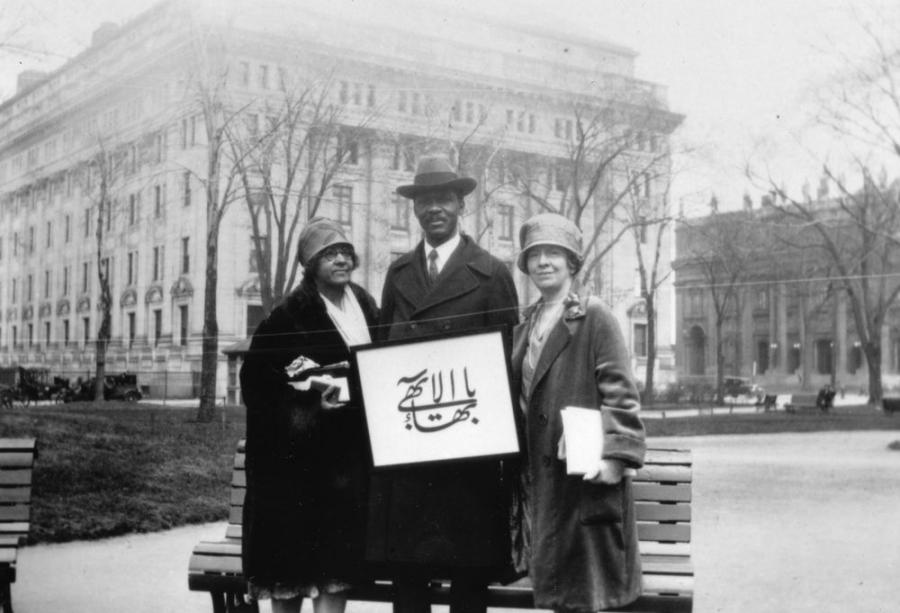The pressing issue of migration continues to challenge humanity, presenting multifaceted dilemmas that transcend political and geographical borders. As members of the Bahá’í community engage with the realities of migration, they do so through a unique lens—one steeped in the principles of cooperation, reciprocity, and unity. This article elucidates the Bahá’í perspective on migration, establishing a framework for understanding why cooperation is essential for addressing the challenges faced by migrant populations.
At the heart of Bahá’í teachings lies the intrinsic oneness of humanity. The notion that every individual, regardless of background, shares a common heritage is pivotal in a world rife with division. Within this paradigm, migration is not merely an option but a vital expression of humanity’s interconnectedness. The Bahá’í view posits that when individuals migrate, they carry with them their unique culture, experiences, and potential contributions, enriching the tapestry of the host nation.
This understanding necessitates a reexamination of traditional narratives surrounding migration. Often, migrants are depicted through a lens of deficit—seen as burdens rather than as vibrant contributors to society. The Bahá’í teachings encourage a paradigm shift: seeing migrants as equal participants in the global community, deserving of dignity and respect. This perspective fosters an ethos of reciprocity and collaboration among diverse groups.
Bahá’í teachings emphasize that cooperation among nations and communities is essential to alleviate the pressures and difficulties faced by migrants. Recognizing that migration is often a consequence of socio-economic challenges, conflict, or climate change, it becomes imperative to cultivate cooperative frameworks that address root causes. These frameworks can include joint efforts between nations to create equitable economic opportunities, stable governance, and protection for vulnerable populations.
Another salient aspect of the Bahá’í perspective on migration is the emphasis on the importance of community integration. Bahá’ís believe that welcoming new members into a community enriches not only the newcomers but also the existing populace. Through the lens of cooperation, local populations can learn from the cultural narratives that migrants bring. Fostering mutual understanding dismantles prejudices and promotes harmony, illustrating that integration is a shared responsibility.
Moreover, the teachings underscore the idea that the migration experience should be reciprocal in nature. This notion transcends mere coexistence, advocating for active engagement and the establishment of channels through which migrants can contribute to their new communities. Bahá’ís see the cultivation of relationships between migrants and host communities as crucial. By establishing programs that promote cultural exchange, mentorship, and leadership opportunities, communities can foster an environment where both migrants and locals learn from one another, driving social innovation and cohesion.
Indeed, the spiritual fabric of Bahá’í teachings calls for the elevation of collective welfare. This perspective urges adherents to demand not only their own rights but also advocate for the rights of others, particularly for marginalized groups, including migrants. The Bahá’í principle of the elimination of prejudice is not only a moral imperative but a catalyst for social cohesion. By challenging stereotypes and misconceptions about migrants, Bahá’ís contribute to a more constructive dialogue on migration, urging communities to embrace change.
The principles of justice and equality central to Bahá’í teachings also imply that migrants should have access to fundamental rights, including education, healthcare, and employment. Addressing these needs is integral to cooperation, as it necessitates a collective endeavor involving governments, NGOs, and local communities. Empowering migrants through education and vocational training not only enhances their individual well-being but also serves the greater good by creating a robust and inclusive society.
The Bahá’í community exemplifies this approach through various initiatives that foster partnership and understanding. Collaborative efforts, such as community service projects that involve both migrants and locals, demonstrate the power of unified action in meeting collective challenges. These projects serve as a platform for engagement, cultivating relationships that transcend cultural and linguistic divides.
Furthermore, the teachings advocate for a global perspective on migration, recognizing it as a phenomenon that extends beyond national borders. The challenges posed by increased mobility call for international cooperation. Sustained dialogue among nations is essential not only for fostering a shared responsibility but also for formulating humane policies that uphold the dignity of migrants. A Bahá’í perspective advocates for collaborative frameworks that provide solidarity, promoting safety and well-being for all.
In conclusion, the Bahá’í teachings highlight the need for cooperation as a fundamental response to the complexities of migration. By embracing the oneness of humanity, fostering community integrations, and prioritizing justice, the Bahá’í community envisions a future where migration is not perceived as a challenge but as an opportunity for collective growth and innovation. The aspiration for unity, rooted in the spirit of collaboration, invites all individuals to consider their role in shaping a more just and harmonious world. As humanity stands at the crossroads of cultural exchange and mutual understanding, the Bahá’í perspective on migration serves as a beacon of hope, urging a collective commitment to cooperation that honors the intrinsic worth of every individual.
